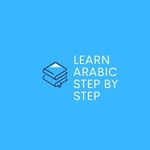Definite vs. Indefinite Noun in Arabic: A Beginner's Guide from Durusul Lughah Vol. 1 Lesson 3
Key Concept of Lesson 3
الْ (al): حَرْفُ تَعْرِيفٍ
يُحْذَفُ التَّنْوِينُ عِنْدَ دُخُولِ الْ
- 'al' is a definite article in Arabic (like 'the' in English).
The tanwiin (nunation) is dropped when 'al' is prefixed to a noun.
النَّكِرَةُ: شَيْءٌ غَيرُ مُعَيَّنٍ, نَحْوُ : بَيْتٌ
- an-Nakirah: an indefinite thing, example: baytun (a house).
المَعرِفَةُ: شَيْءٌ مُعَيَّنٌ, نَحْو : البَيْتُ
- al-ma'rifah: a definite thing, example: al-baytu (the house).
بَيْتٌ: يَشْمَلُ كُلَّ البُيُوتِ, وَلَيْسَ بَيْتًا مُعَيَّنًا
- baytun (a house): include all houses, and not a specific house.
البَيْتُ: يَدُلُّ عَلَى بَيْتٍ مُعَيَّنٍ بِذَاتِهِ
- al-baytu (the house): refers to a particular house itself.
an-Nakirah vs. al-Ma'rifah
In Arabic, just like in English, nouns can be either indefinite (general) or definite (specific). This concept is crucial for understanding how Arabic nouns work.
1. an-Nakirah (Indefinite noun)
- An indefinite noun refers to something general or unspecified.
- Think of it like using "a" or "an" before a noun in English.
- In Arabic, indefinite nouns often end with a special sound called Tanween (تَنْوِين). Tanween is a double vowel mark (like two "u" sounds, two "a" sounds, or two "i" sounds) at the end of a noun, which adds an 'n' sound.
Example: بَيْتٌ (baytun) - This literally means "a house" or "any house." It's not referring to a particular house, but rather any house at all.
2. al-Ma'rifah (definite noun)
- A definite noun refers to something specific or known.
- Think of it like using "the" before a noun in English.
- In Arabic, to make a noun definite, you add the prefix الْ (al-) to the beginning of the noun. This "al-" is the equivalent of "the."
Example: البَيْتُ (al-baytu) - This means "the house," referring to a specific house that both the speaker and listener know about.
The Rule of "الْ (al-)" and Tanween (تَنْوِين)
This is a very important rule:
- When you add الْ (al-) to the beginning of an indefinite noun to make it definite, the Tanween (تَنْوِين) at the end of the noun MUST be dropped.
- The noun will then end with a single vowel sound (e.g., a single "u", "a", or "i" sound), not the double Tanween sound.
In summary:
- Tanween (like the "un" sound) means "a/an" (indefinite).
- الْ (al-) means "the" (definite).
- You cannot have both Tanween and الْ (al-) on the same noun at the same time. If الْ (al-) is present, Tanween must be absent.
Let's read the Arabic texts and translate them into English
الدَّرْسُ الثَّالِثُ (ad-darsuth thaalithu): Third lesson/Lesson 3
بَيْتٌ : a house.
البَيْتُ : the house.
قَلَمٌ : a pen.
القَلَمُ : the pen.
كِتَابٌ : a book.
الكِتَابُ : the book.
جَمَلٌ : a camel.
الجَمَلُ : the camel.
القَلَمُ مَكْسُورٌ (al-qalamu maksuurun)
The pen is broken.
البَابُ مَفْتُوحٌ (al-baabu maftuuhun)
The door is open.
الوَلَدُ جَالِسٌ وَالمُدَرِّسُ وَاقِفٌ (al-waladu jaalisun walmudarrisu waaqifun)
The boy is sitting and the teacher is standing.
1. الكِتَابُ جَدِيدٌ وَالقَلَمُ قَدِيمٌ (al-kitaabu jadiidun walqalamu qadiimun)
The book is new, and the pen is old.
2. الحِمَارُ صَغِيرٌ وَالحِصَانُ كَبِيرٌ (al-himaaru saghiirun walhisaanu kabiirun)
The donkey is small, and the horse is big.
3. الكُرْسِيُّ مَكْسُورٌ (al-kursiyyu maksuurun)
The chair is broken.
4. المِنْدِيلُ وَسِخٌ (al-mindiilu wasikhun)
The handkerchief is dirty.
5. المَاءُ بَارِدٌ (al-maa-u baaridun)
The water is cold.
6. القَمَرُ جَمِيلٌ (al-qamaru jamiilun)
The moon is beautiful.
7. البَيْتُ قَرِيبٌ وَالمَسْجِدُ بَعِيدٌ (al-baytun qariibun walmasjidu ba'iidun)
The house is close, and the mosque is far.
8. الحَجَرُ ثَقِيلٌ وَالوَرَقُ خَفِيفٌ (al-hajaru thaqiilun walwaraqu khafiifun)
The stone is heavy and the paper is light.
9. اللَّبَنُ حَارٌّ (al-labanu haarrun)
The milk is hot.
10. القَمِيصُ نَظِيفٌ (al-qamiisu naziifun)
The shirt is clean.
تَمَارِينُ (tamaariinu): Exercises
اقْرَأْ وَاكْتُبْ مَعَ ضَبْطِ أَوَاخِرِ الكَلِمَاتِ (iqra' waktub ma'a dabti awaakhiril kalimaati): Read and write with correct vowel marking (diacritics) of the word endings.
We have found the verb اقرأ and اكتب in the previous lesson, now we will take a look at these words: مَعَ, ضَبْطٌ , أَوَاخِرُ, كَلِمَاتٌ
a. مَعَ (ma'a): with
b. ضَبْطٌ (dabtun): correct.
In this context, dabtun often refers to applying the correct vowel marking/diacritical marking (harakat) to a word.
c. أَوَاخِرُ (awaakhiru) : last; end
d. كَلِمَاتٌ (kalimaatun): words
مَسْجِدٌ (masjidun): a mosque.
المَسْجِدُ (al-masjidu): the mosque.
المَاءُ (al-maa-u): the water.
مَاءٌ (maa-un): water.
البَيْتُ (al-baytu): the house.
بَابٌ (baabun): a door.
قَلَمٌ (qalamun): a pen.
القَلَمُ (al-qalamu): the pen.
الكَلْبُ (al-kalbu): the dog.
كَلْبٌ (kalbun): a dog.
قَمِيصٌ (qamiisun): a shirt.
وَلَدٌ (waladun): a boy.
الحَجَرُ (al-hajaru): the stone.
الوَلَدُ (al-waladu): the boy.
حِمَارٌ (himaarun): a donkey.
الحِمَارُ (al-himaaru): the donkey.
الحِصَانُ (al-hisaanu): the horse.
حِصَانٌ (hisaanun): a horse.
اقْرَأْ وَاكْتُبْ (iqra' waktub): Read and write
1. المَكْتَبُ مَكْسُورٌ (al-maktabu maksuurun).
The desk is broken.
2. المُدَرِّسُ جَدِيدٌ (al-mudarrisu jadiidun).
The teacher is new.
3. القَمِيصُ وَسِخٌ (al-qamiisu wasikhun).
The shirt is dirty.
4. اللَّبَنُ بَارِدٌ (al-labanu baaridun).
The milk is cold.
5. المَسْجِدُ مَفْتُوحٌ (al-masjidu maftuuhun).
The mosque is open.
6. الحَجَرُ كَبِيرٌ (al-hajaru kabiirun).
The stone is big.
7. اللَّبَنُ بَارِدٌ وَالمَاءُ حَارٌّ (al-labanu baaridun wal maa-u haarrun).
The milk is cold, and the water is hot.
8. الإِمَامُ جَالِسٌ وَالمُدَرِّسُ وَاقِفٌ (al-imaamu jaalisun walmudarrisu waaqifun).
The imam is sitting and the teacher is standing.
9. القَمَرُ بَعِيدٌ (al-qamaru ba'iidun).
The moon is far.
10. المِنْدِيلُ نَظِيفٌ (al-mindiilu naziifun).
The handkerchief is clean.



No comments:
Post a Comment